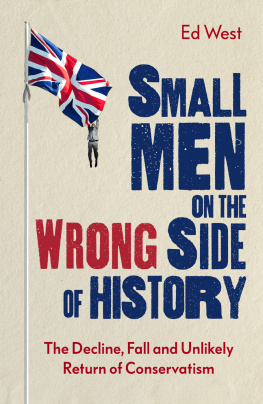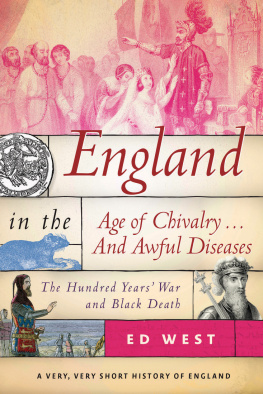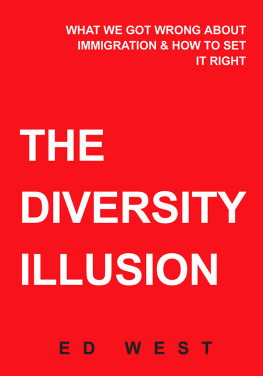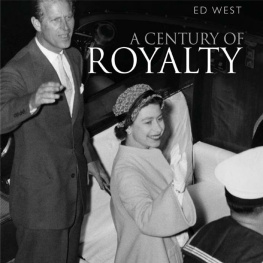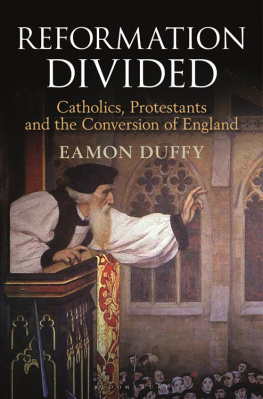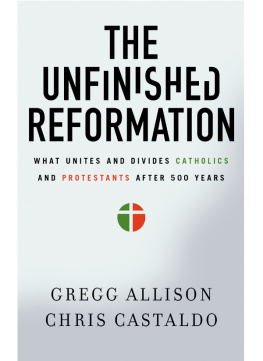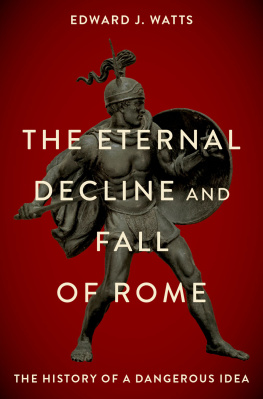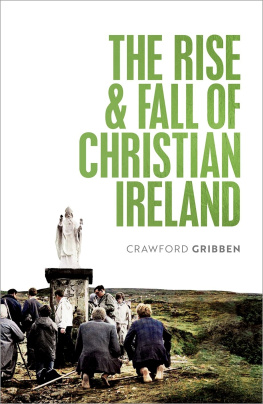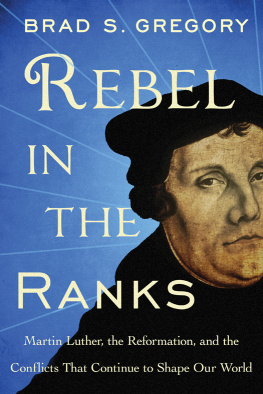Small Men on the
Wrong Side of History
The Decline, Fall and Unlikely Return of Conservatism
Ed West

CONSTABLE
First published in Great Britain in 2020 by Constable
Copyright Ed West, 2020
The moral right of the author has been asserted.
All rights reserved.
No part of this publication may be reproduced, stored in a retrieval system, or transmitted, in any form, or by any means, without the prior permission in writing of the publisher, nor be otherwise circulated in any form of binding or cover other than that in which it is published and without a similar condition including this condition being imposed on the subsequent purchaser.
A CIP catalogue record for this book
is available from the British Library.
ISBN: 978-1-47213-080-8
Constable
An imprint of
Little, Brown Book Group
Carmelite House
50 Victoria Embankment
London EC4Y 0DZ
An Hachette UK Company
www.hachette.co.uk
www.littlebrown.co.uk
CONTENTS
One morning, a few months short of my fortieth birthday, I awoke with a monstrous hangover, a vague memory of embarrassing myself the previous night, and the dawning realisation that my worldview is dying. The previous day the Tory government, despite taking on an almost comically inept opposition with a leader wildly to the Left of anyone in British electoral history, had managed to lose their majority in Parliament. More disturbing, though, they had been massacred among the under-forties and professional classes.
The result itself was not the really alarming thing, and would be corrected two and a half years later when the Conservatives won a majority under Boris Johnson. Far more worrying was that, as I headed deep into the happiness U-bend of middle age, no one I knew was becoming more conservative. It had been said before, in the 1960s and 1920s and probably before, that the young were Left-wing and so the future was socialist or liberal; then those cohorts had matured, or perhaps just become more bitter and cynical as they aged, and so had adopted conservative worldviews; but this was no longer happening, and my personal observations were matched by growing amounts of data. The Tories could still win elections, but they now depended on the elderly; the generation entering middle age were something different, and would not, as Father Ted put it, become more Right-wing as they got older. They were cut off from the old faith.
Conservative parties could still win elections but conservatism was an endangered creed, as much in demographic decline as the Christianity from which it once emerged, and the degree to which it had become hated by anyone born after 1970 was intense and perhaps irreversible. It was not the young who had turned out to wreck the Tories in 2017, despite the term youthquake being bandied around, but the middle-aged; this wasnt the natural rebelliousness of adolescence but a more permanent shift of social mores, changes that made conservatism socially abnormal and anything associated with it electoral excrement. This was repeated again at the 2019 election when the Tories lost heavily among all age groups under 44.
When I was in my mid-twenties and quite conservative for my peer group I assumed that I was just an anomaly, someone who develops these traits earlier than normal, and conservatism was like baldness or impotence or the other bad things that people get in middle age. One day you just wake up and realise youd rather go to a country pub than a nightclub, cant be bothered getting into new bands because music was perfected in 1995, and agree with what you read in the Telegraph. Most of my friends and acquaintances would catch up at some point, because these things just develop at different speeds.
By my late thirties I realised its worse than that and almost none of my contemporaries was going to become more conservative; if anything, they had turned more Left-wing than they were ten or twenty years earlier, as the barometer of what is progressive and therefore socially acceptable had shifted. Indeed, despite long-held Conservative assumptions that people will always grow into Toryhood, surveys showed that those from Generation X (born between 1965 and 1980) were actually moving to the Left as they got older, and in the US the proportion identifying as liberal had increased from 29 per cent in the mid-1990s to almost half today. The same thing was happening with the cohort after us, the Millennials (born 198196), who were not showing any signs of becoming more Right-wing as they aged.
By any conceivable measure, what is regarded as mainstream, normal opinion had shifted rapidly in the preceding decades, but the rate of change now also seemed to be speeding up, almost as if we were heading for some sort of progressive singularity. The most influential publications and broadcasters among people who matter, the BBC, Times, Guardian, Financial Times, Economist and even the Daily Telegraph, had all become considerably more socially liberal in that period, a shift that was accompanied by a shrinking bracket of what was permissible to think without social sanction. On almost any non-economic issue most of my friends hitting forty were more progressive than in their early twenties; they might resent paying more tax or even dislike trade unions, but that didnt make them conservative.
Among my contemporaries in the 3544 age group, some 50 per cent voted for Corbyn in 2017 and even if many did not entirely support his particular interpretation of the Left they were nevertheless totally repulsed by conservatism. Indeed the Brexit referendum had helped to expose how much the Tory partys brand was entirely built around its reputation for economic competence, a reputation now largely pissed against the wall; it exposed just how unpopular conservative philosophy actually was once financial considerations were removed. This sense of revulsion was felt not just by a large proportion of young and middle-aged Britons, but by the overwhelming majority of the most educated and influential.
The daunting realisation was that this cultural shift was permanent and even more pronounced among the cohorts growing up. Faiths abandoned by grandparents and forgotten by parents will not be retained by the children. At my kids school a mock election that same week featuring made-up parties was won overwhelmingly by Change (this was before Change UK was launched as a party, rather less successfully as it turned out), whose rhetoric was obviously progressive and inclusive, and illustrated how attractive the Lefts language and philosophy were to the young and how difficult was the uphill struggle now faced by conservatives. Our philosophy is now so counterintuitive, so hampered by the negative undertones of the words associated with it, and so reflexively badly viewed in the surrounding culture, that its long-term prospects seem distinctly gloomy, barring either an unprecedented religious revival or the sort of apocalyptic event that pushes us back to the Dark Ages. And even I would find civilisational collapse a somewhat worse prospect than having to listen to Radio 4 talk about gender equality every morning.
Among the parents at my childrens school Id be one of only a tiny handful who identified as conservative, and the only issue for most would be which Left they identified with, the centrist or more radical wing. And so despite all the liberal lamentation about Brexit and Trump and the live-action nervous breakdowns of so many members of the commentariat these events are most likely mere blips in the onward march of progressivism; the former supported by the old and the latter by the prematurely dying in Americas depressed, opiate-riddled heartlands.
Next page
